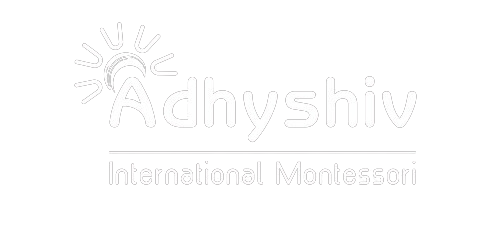
- Info@adhyshiv.com
- +91 78711 11111
- Mon - Fri 08:30 - 16:00
- Info@adhyshiv.com
- +91 78711 11111

Menu


This blog can delve into the alignment between Montessori principles and key stages of child development. Discuss how the Montessori method caters to a child’s natural curiosity, independence, and social-emotional growth at various developmental milestones.
These additional blog posts will further engage your audience, providing valuable information about Montessori education and its application both in and outside the classroom. They will position your school as a knowledgeable resource for parents and caregivers seeking to understand and implement Montessori principles effectively.
Maria Montessori once said, “Follow the child; they will show you what they need to do, what they need to develop in themselves and what area they need to be challenged in.” This profound insight underscores the remarkable alignment between Montessori principles and the key stages of child development.
Nurturing Curiosity and Independence:
In the early years, a child’s curiosity knows no bounds. Montessori classrooms capitalize on this natural inclination, offering an environment rich with sensorial experiences and materials that invite exploration. As children move through the sensitive periods of development, they’re given the freedom to choose their activities and work at their own pace. This fosters not only independence but also a genuine love for learning.
The Sensitive Periods:
Montessori educators recognize the existence of sensitive periods—windows of opportunity during which a child is particularly receptive to certain types of learning. For example, the sensitive period for language occurs between birth and around age 6. Montessori materials, designed to tap into these sensitive periods, help children acquire skills effortlessly and joyfully.
Social-Emotional Growth:
Montessori education places a strong emphasis on social and emotional development. In multi-age classrooms, children interact with peers of different ages, fostering a sense of community and cooperation. Through practical life activities, they learn essential life skills and build confidence. Additionally, the peace education component teaches conflict resolution and empathy, nurturing strong social-emotional foundations.
Supporting Individual Needs:
The Montessori approach recognizes that each child is unique and progresses through developmental stages at their own pace. Teachers observe and adapt their guidance to the specific needs of each child. This personalized approach ensures that children are challenged appropriately and receive the support they require.
Conclusion:
Montessori and child development are indeed a perfect pair. The Montessori method not only aligns with the natural course of child development but also actively supports and enhances it. By nurturing curiosity, independence, and social-emotional growth at various developmental milestones, Montessori education empowers children to become confident, self-directed learners who are well-prepared for the journey of life. It’s a partnership between educators, children, and the developmental journey itself—a partnership that inspires a lifelong love for learning and self-discovery.